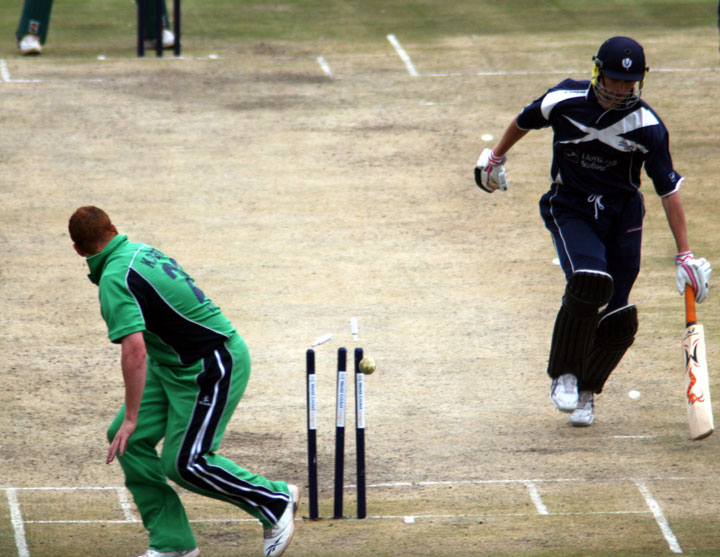In these days of DRS and VAR there is no shortage of technology to help umpires and referees come to the right decision, although it must be admitted that even with this help, there are still plenty of mistakes in their interpretation.
However, away from Full Member cricket, the umpires decision is always right, even when he’s wrong.
That can be very hard for players to take, especially when a decision can be a costly one, not only in terms of money, but also a chance to appear at a World Cup.
In Nairobi in 2007, Scotland and Ireland were playing in a crucial World Cricket League match, with the competition also being used as a qualifier for the inaugural T20 World Cup later that year in South Africa.
 ©CricketEurope
©CricketEurope
In a tense finale, Craig Wright was the Scottish hero as he hit the last ball to the boundary sealing the win as he made 23 from just 11 balls.
However the Irish felt aggrieved as he should have been given run out before he had scored a run, as he was well short of his crease when Kevin O’Brien threw the ball onto the stumps.
Umpire Roger Dill missed it, and Scotland went on to reach the final and gain one of the World T20 places plus a $250,000 participation fee.
Scotland weren’t so fortunate in the qualifier for the 2019 World Cup when in another tense contest, they were the victims this time of an umpiring blunder, as Paul Wilson gave Richie Berrington lbw with replays showing the ball missing by feet. To save costs ICC weren’t using DRS, and when the rain stopped the match minutes later, Scotland were behind on DLS instead of just ahead, and missed out on the World Cup. A bitter pill to swallow.
